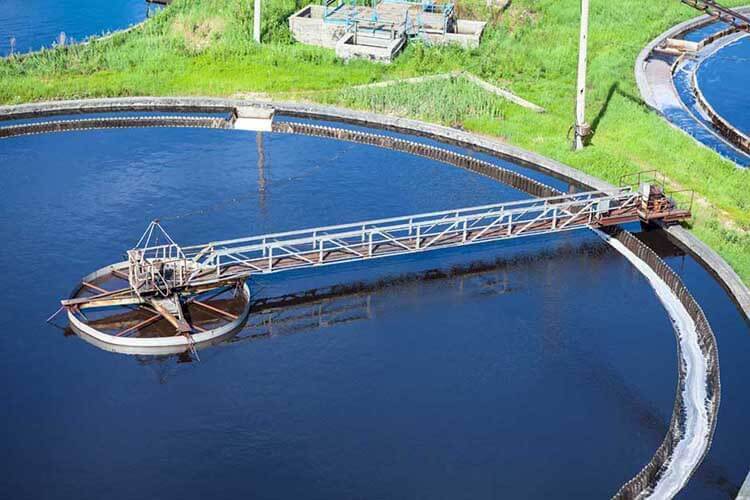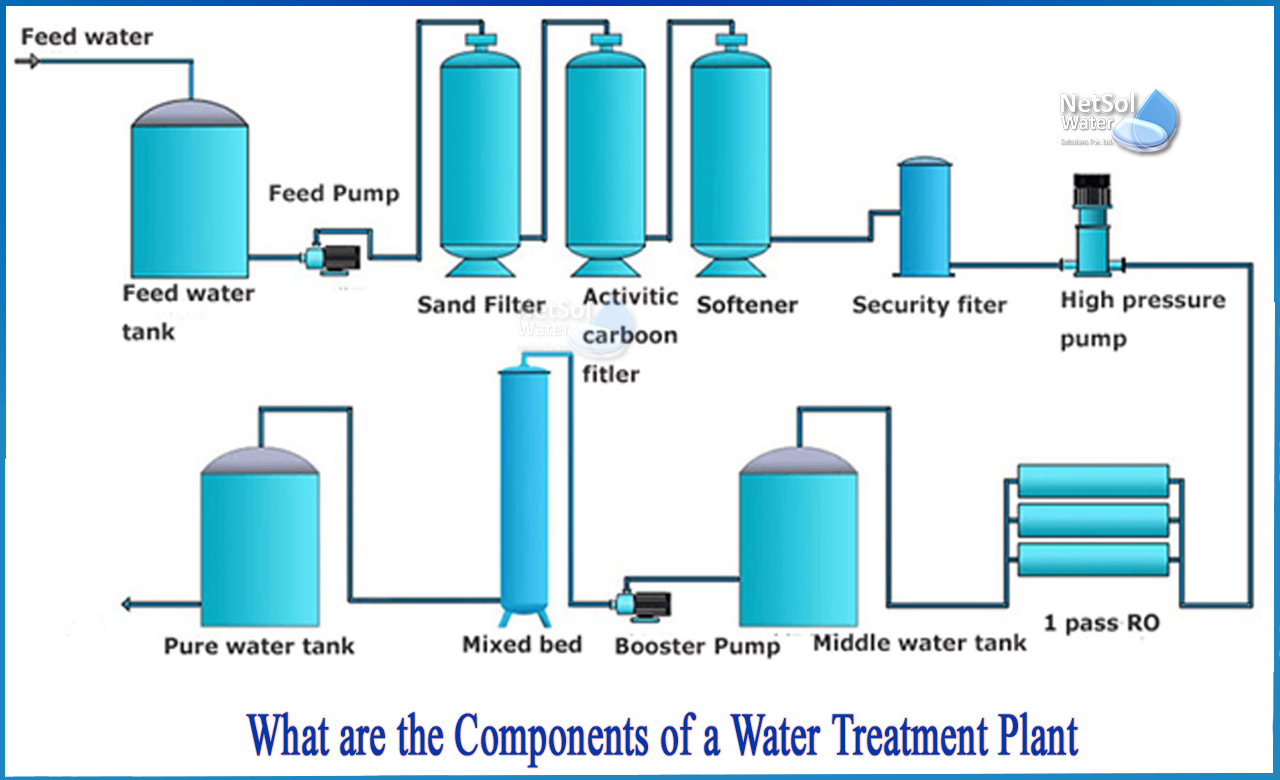Water Technology Startups: Business Models That Work in a Competitive Space
Exploring Water Technology Startups: How They Revolutionize Lasting Solutions
Water Technology startups are becoming critical players in the pursuit for lasting options to global water concerns. These firms take advantage of innovative technologies to enhance water effectiveness and monitoring. Their payments attend to pushing challenges such as deficiency and contamination. Despite their possibility, they deal with various challenges that can impact their success. Recognizing these dynamics clarifies the future of water sustainability and the role these start-ups may play fit it.
The Relevance of Water Technology in Today's Globe
As global water deficiency magnifies, the relevance of water Technology becomes significantly apparent. Water Technology plays an important role in resolving the difficulties posed by boosting and lessening fresh water resources demand. It includes a wide series of innovations, including advanced purification systems, wastewater therapy modern technologies, and smart irrigation remedies. These innovations not just enhance the effectiveness of water usage however additionally advertise sustainable techniques across different markets, consisting of agriculture, industry, and urban development.
Additionally, the significance of water Technology extends past source management. It fosters strength against environment modification effects, such as floods and dry spells, by providing flexible solutions for water conservation and management. In addition, it sustains public wellness by making sure accessibility to risk-free and tidy alcohol consumption water. As the globe deals with expanding water-related obstacles, the assimilation of sophisticated water technologies is important for promoting sustainable advancement and protecting water accessibility for future generations.
Ingenious Solutions From Water Tech Startups
While conventional methods to water administration have served their purpose, a new age of water technology startups is transforming the market with ingenious services (Water Technology Startups). These firms utilize innovative modern technologies to attend to pressing water problems, such as shortage, contamination, and ineffective circulation. Numerous startups utilize expert system and artificial intelligence to maximize water use and forecast need, leading to more lasting techniques
In addition, several companies concentrate on developing innovative purification systems that eliminate toxins and make water risk-free for usage. Others discover decentralized water treatment technologies, permitting communities to handle their water sources a lot more successfully. In addition, some startups are pioneering clever watering services that minimize water waste in agriculture, advertising ecological preservation.
Situation Researches: Effective Water Technology Startups
Various water Technology start-ups have actually arised as leaders in dealing with worldwide water difficulties via innovative techniques. One remarkable instance is Xylem, which focuses on water analytics and smart facilities to optimize water use and minimize waste. Their options have actually been implemented in various towns, demonstrating considerable improvements in water management effectiveness.
An additional effective start-up, Absolutely no Mass Water, has developed solar-powered hydropanels that draw out water vapor from the air, providing lasting alcohol consumption water in deserts. Water Technology Startups. This Technology has been released in numerous nations, ensuring communities have access to clean water
Lastly, AquaVenture Holdings operates a diverse portfolio of water-as-a-service services, dealing with water shortage with desalination and wastewater treatment. Their tasks have actually shown crucial in areas dealing with serious water scarcities, showcasing the possibility of innovative water technologies to develop long-term, favorable impacts. These study highlight the transformative potential of start-ups in the water Technology market.
The Function of Smart Technology in Water Administration
Smart Technology plays a necessary function in contemporary water management by leveraging IoT applications to maximize resource use. Information analytics improves efficiency by giving workable insights, while remote surveillance remedies allow real-time oversight of water systems. Together, these technologies change exactly how water is handled, promoting sustainability and functional efficiency.
IoT Applications in Water
As water scarcity and management obstacles intensify globally, the integration of Net of Points (IoT) applications has arised as an essential service in optimizing water resources. IoT Technology facilitates real-time tracking and evaluation of water systems, making it possible for much more reliable usage and administration. Sensors deployed in numerous water infrastructures can track high quality, circulation rates, and leakage, giving important information to stakeholders. This data equips consumers and energies to make informed decisions, reducing waste and enhancing preservation efforts. Furthermore, clever irrigation systems use IoT to maximize water delivery for farming, guaranteeing that plants obtain the correct amount of water at the right time. Generally, IoT applications are transforming standard water monitoring methods, promoting sustainability and durability in water source systems.
Information Analytics for Efficiency
Taking advantage of data analytics is essential for enhancing effectiveness in water monitoring. Water Technology start-ups are increasingly making use of advanced analytics to maximize source allocation and reduce waste. By evaluating data from different resources, these start-ups can recognize patterns and fads that notify much better decision-making. Anticipating analytics can forecast water demand, allowing energies to readjust supply appropriately, thus reducing shortages and surpluses. Additionally, real-time information handling makes it possible for the prompt discovery of leakages and inefficiencies within circulation systems, greatly reducing functional expenses. Furthermore, data-driven understandings encourage stakeholders to apply targeted conservation strategies, fostering lasting methods. Basically, integrating information analytics into water management not just enhances operations yet also advertises long-term sustainability in water Water Technology Startups source usage.
Remote Surveillance Solutions
While conventional water management systems usually fight with ineffectiveness, remote surveillance options are changing exactly how water sources are managed. These cutting-edge technologies allow real-time information collection and analysis, enabling stakeholders to monitor water high quality, circulation rates, and usage patterns from afar. Making use of sensors and IoT gadgets, remote surveillance provides instant understandings that help with aggressive decision-making. This shift not just enhances functional efficiency however additionally promotes sustainability by minimizing water waste and optimizing resource allocation. Furthermore, remote monitoring systems can identify possible issues before they rise, thus reducing the threat of contamination or infrastructure failure. As water Technology start-ups remain to establish these services, the industry is positioned for significant improvements in sustainable water management methods.
Obstacles Encountering Water Technology Startups
Water Technology startups experience considerable difficulties that can prevent their development and success. Trick issues include protecting appropriate financing, maneuvering through intricate governing settings, and completing in a jampacked industry. These challenges need calculated preparation and advancement to get over.
Financing and Financial Investment Obstacles
Although technology in water Technology holds tremendous possibility for addressing global challenges, start-ups in this field commonly deal with considerable financing and financial investment hurdles. Several financiers continue to be mindful, viewing the water sector as risky because of its intricate regulative landscape and long growth timelines. Furthermore, start-ups usually have a hard time to demonstrate immediate productivity, which can prevent prospective backers. Typical equity capital might neglect water technology, preferring industries with quicker returns, such as tech or durable goods. Additionally, securing grants and federal government financing can be competitive and lengthy, further complicating economic stability. Water Technology Startups. Because of this, numerous cutting-edge water Technology startups discover themselves in a ragged edge, calling for creative funding approaches to navigate these financial barriers and attain their goals
Regulatory Conformity Issues
Guiding regulatory compliance is a substantial obstacle for startups in the water Technology industry, as they need to face a myriad of local, national, and worldwide laws. These policies usually encompass water high quality criteria, environmental management legislations, and safety and security protocols, which can vary commonly throughout jurisdictions. Startups may locate it difficult to navigate this facility landscape, particularly when scaling operations or going into brand-new markets. The expenses linked with compliance can be considerable, drawing away sources far from technology and item growth. Additionally, delays in obtaining necessary permits or accreditations can impede development and market access. A robust understanding of governing structures is crucial for these startups to guarantee sustainable operations and avoid prospective lawful consequences.
Market Competitors Characteristics
As water Technology start-ups emerge in a competitive landscape, they face various challenges that can hinder their growth and advancement. Developed business commonly control the marketplace, leveraging sources and experience to preserve their positions. Start-ups struggle with limited financing, which limits r & d capabilities, making it challenging to compete on Technology and rates. In addition, the rapidly developing nature of water modern technologies demands continuous adaptation, further stressing start-up sources. Regulatory obstacles can make complex market access, as compliance with ecological criteria is important yet pricey. Lastly, bring in knowledgeable skill in a niche field offers another challenge, as bigger firms might offer even more enticing employment plans. Consequently, these aspects create a complicated setting for water Technology start-ups aiming to be successful.

The Future of Water Technology and Sustainability

The future of water Technology will likely focus on integrating fabricated knowledge and data analytics to optimize water circulation and usage patterns. By harnessing real-time data, firms can forecast lacks and handle sources better. Moreover, lasting techniques will end up being a foundation of the market, motivating circular economic climates where water is reused and treated. Inevitably, the ongoing evolution of water Technology will be vital in creating resistant infrastructures qualified of satisfying the challenges posed by environment modification and population development while advertising environmental stewardship.
Often Asked Inquiries
What Are the Key Metrics for Reviewing Water Technology Startups?
Secret metrics for reviewing water Technology startups consist of market potential, scalability, client acquisition costs, revenue growth, modern technology development, governing compliance, ecological influence, competitive advantage, and group competence, all crucial for figuring out lasting viability and success.
Exactly How Can Individuals Assistance Water Technology Innovations?
People can sustain water Technology developments by spending in start-ups, promoting for plan changes, joining area campaigns, sharing knowledge about sustainable methods, and advertising recognition of water concerns through regional occasions and social media.
What Are Usual Financing Resources for Water Technology Startups?
Usual financing resources for water technology start-ups include financial backing, government grants, crowdfunding platforms, angel financiers, and corporate partnerships. These financial avenues help facilitate development and development in sustainable water management technologies.

Which Industries Advantage A Lot Of From Water Technology Advancements?
Industries such as farming, power, manufacturing, and local services benefit considerably from water Technology advancements. These innovations enhance water performance, reduce costs, and advertise lasting methods, ultimately contributing to environmental preservation and resource management.
Exist Any Type Of Regulatory Obstacles Certain to Water Technology?
Yes, water Technology encounters governing difficulties, consisting of conformity with environmental criteria, allowing processes, and differing local policies. These complexities can prevent advancement and slow down the application of new innovations in the water management market.
Water Technology start-ups are emerging as crucial gamers in the mission for lasting services to international water problems. As international water shortage escalates, the relevance of water Technology ends up being significantly apparent. Others check out decentralized water therapy technologies, allowing neighborhoods to handle their water sources more efficiently. One more effective startup, No Mass Water, has actually developed solar-powered hydropanels that draw out water vapor from the air, giving sustainable alcohol consumption water in arid regions. Their tasks have actually proven necessary in areas dealing with serious water scarcities, showcasing the possibility of innovative water innovations to develop long-term, positive influences.